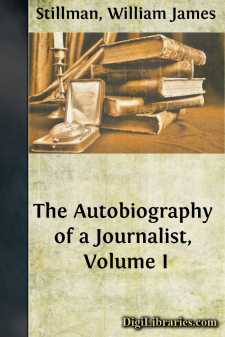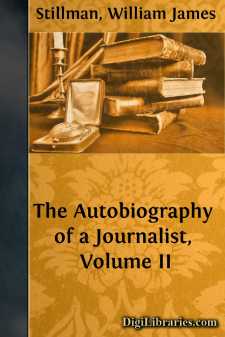Categories
- Antiques & Collectibles 13
- Architecture 36
- Art 48
- Bibles 22
- Biography & Autobiography 813
- Body, Mind & Spirit 142
- Business & Economics 28
- Children's Books 17
- Children's Fiction 14
- Computers 4
- Cooking 94
- Crafts & Hobbies 4
- Drama 346
- Education 46
- Family & Relationships 57
- Fiction 11829
- Games 19
- Gardening 17
- Health & Fitness 34
- History 1377
- House & Home 1
- Humor 147
- Juvenile Fiction 1873
- Juvenile Nonfiction 202
- Language Arts & Disciplines 88
- Law 16
- Literary Collections 686
- Literary Criticism 179
- Mathematics 13
- Medical 41
- Music 40
- Nature 179
- Non-Classifiable 1768
- Performing Arts 7
- Periodicals 1453
- Philosophy 64
- Photography 2
- Poetry 896
- Political Science 203
- Psychology 42
- Reference 154
- Religion 513
- Science 126
- Self-Help 84
- Social Science 81
- Sports & Recreation 34
- Study Aids 3
- Technology & Engineering 59
- Transportation 23
- Travel 463
- True Crime 29
The Autobiography of a Journalist, Volume I
Description:
Excerpt
CHAPTER I
A NEW ENGLAND MOTHER AND HER FAMILY
A theory is advanced by some students of character that in what concerns the formation of the individual nature, the shaping and determination of it in the plastic stage, and especially in respect to the moral elements on which the stability and purpose of a man's life depend, a man is indebted to his mother, for good or for ill. The question is too abstruse for argument, but, so far as my own observation goes, it tends to a confirmation of the theory. I have often noticed in children of friends that in childhood the likeness to the mother was so vivid that one found no trace of the father, but that in maturity this likeness disappeared to give place to that of the father. In my own case, taking it for what it is worth, I can only wish that the mother's part had been more enduring, not that I regret the effect of my father's influence, but because I think my mother had some qualities from which my best are derived, and which I should like to see completely carried out in the life of a man, while I recognize in a certain vagarious tendency in my father the probable hereditary basis of the inconstancy of purpose and pursuit, which may not have deprived my life of interest to others, but which has made it comparatively barren of practical result. As a study of a characteristic phase of New England life which has now entirely disappeared, I believe that a picture of her and her family will be of interest to some readers.
In my oldest brother, Thomas B. Stillman, known in the last generation as the chief of the steam engineering of his day in the United States, the mentor of that profession, I can see more of my mother than in any other of the six brothers. He inherited, like all of us, his father's mechanical tendency and inventiveness, and added to it a persistency and constancy of purpose peculiarly hers, which none of the other children inherited to the same extent; and he had in its fullness the devotional sentiment, the absorption in religious duties, as the chief motive in life, which was her ruling passion,—for passion it was in her,—the hanging on the Cross of everything she most valued in life.
My mother, Eliza Ward Maxson, was born in Newport, Rhode Island, on September 11, 1783, my father being seven years her senior. The childhood of both was, therefore, surrounded by the facts and associations of the war of American independence. He, in fact, as I have heard him say, was born under the rule of the King of England, and his father considered the Revolution so little justified that to the day of his death he refused to recognize the government of the United States; but, living a quiet life on his farm, he was never disturbed by the pressure which exiled the noted and active Tories.
My mother's earliest recorded ancestor was a John Maxson, one of the band of Roger Williams, driven by the Puritans out of Massachusetts into the wilder parts of "Rhode Island and Providence Plantations," where—in the absence of all established law, as well as government—they might worship God in the way their consciences dictated, free from the restrictions on the liberty of conscience imposed by the Pilgrim Fathers....



